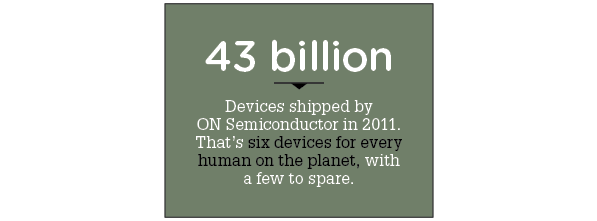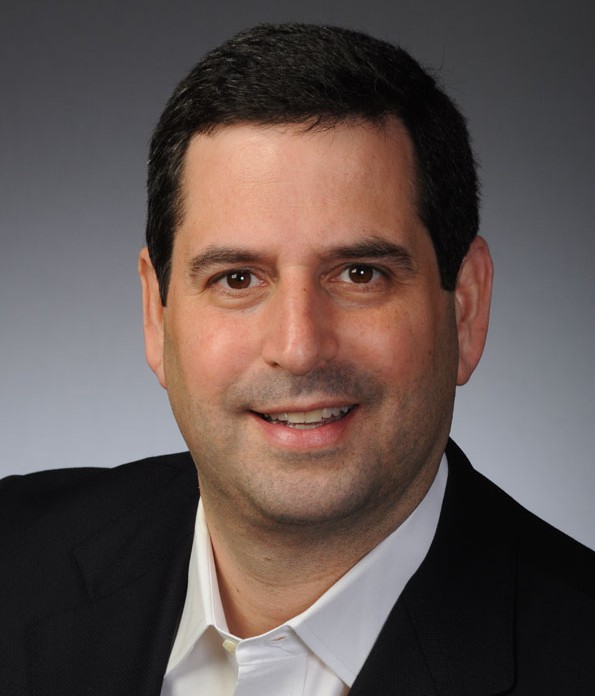As senior vice president, general counsel, chief compliance & ethics officer, and corporate secretary of ON Semiconductor, Sonny Cave has a major influence on the complicated legal workings of a global, top 20 semiconductor firm. Cave joined ON Semiconductor, a $3.4 billion worldwide supplier of high-performance silicon solutions for energy-efficient electronics, after its 1999 spin-off from Motorola. He was tasked with setting up the new company’s legal department. Today, that department is made up of a staff of 45 that stretches worldwide and handles in-house legal, intellectual property, government relations, and contracts. Cave also enlists the work of more than 100 outside legal firms. Recognized as a model program, ON Semiconductor’s law department won the 2011 Arizona In-House Law Department of the Year Award from the Association of Corporate Counsel. Profile sat down with Cave to discuss the inner workings of such a globally successful legal department.

What prepared you for your work at ON Semiconductor?
My bachelor’s is in botany and my master’s is in plant ecology. I studied environmental and natural-resources law, and practiced in that area for six years with two private law firms. I joined Motorola as an environmental health and safety lawyer in 1992, and eventually worked my way up to lead a global, environmental-health-and-safety law group. That’s when I interfaced with Motorola’s semiconductor business. They were looking at investing in different emerging markets around the world, and I was involved.
And you created the ON Semiconductor law department from scratch?
Yes. We grew the staff and developed all the programs and support for the legal work needed. Then in 2002, when Sarbanes-Oxley was enacted, I took on the chief compliance and ethics officer title. Today, we have between 30 and 40 professionals with responsibilities in that area. I now spend more than 20 percent of my time in this area, and our programs have been benchmarked with the Corporate Executive Board’s Compliance and Ethics Leadership Council.
How important is compliance and ethics during an acquisition?
It’s a significant component, both in the preacquisition due-diligence phase and the postacquisition integration phase. We’ve completed more than 10 acquisitions, most of them in the last five years. Compliance and ethics work is increasingly more important as we grow the company and expand our operations and markets outside of the United States. This is challenging, because not all the companies we acquire have robust compliance and ethics programs in place. Even when they do, there may be a different corporate culture or a different way to approach compliance and ethics, so it takes a lot of thinking and time and energy to meld these different aspects together into a unified culture.
What’s the challenge posed by the breadth of ON Semiconductor’s sectors and product categories?
Just the logistics alone are phenomenal, since the company’s semiconductors are utilized in all manner of electronics—from white goods to computers and cell phones to automobiles. Last year, ON Semiconductor shipped 43 billion devices—a staggering number that equates to more than six devices per every human being. We have to know legal issues with product warranties, how products are being used, and whether they’re being used properly. We deal with product counterfeiting. I also have government relations under me and conduct lobbying efforts in conjunction with trade associations.
Is there a piece of advice you received years ago that still guides you today?
When I was in law school, I worked as an intern for the National Wildlife Federation. The gentleman running that program would always say, “No matter what it is you do, you need to be excellent and do the very best you possibly can, whether you like it or don’t, whether you think it’s important or not.” That has been my personal philosophy and it has served me well, and I try to promote that with others.
Finally, tell me about some of the community work you’re doing.
I am vice chairman of the board for the American Medical College of Homeopathy here in Phoenix. Also, the Arizona State Bar has a required course for attorneys on professionalism, and I’m on the faculty. I lecture and teach at different seminars for legal groups. And last year, I coauthored a chapter in a legal treatise on benchmarking for in-house law departments and outside law firms.


